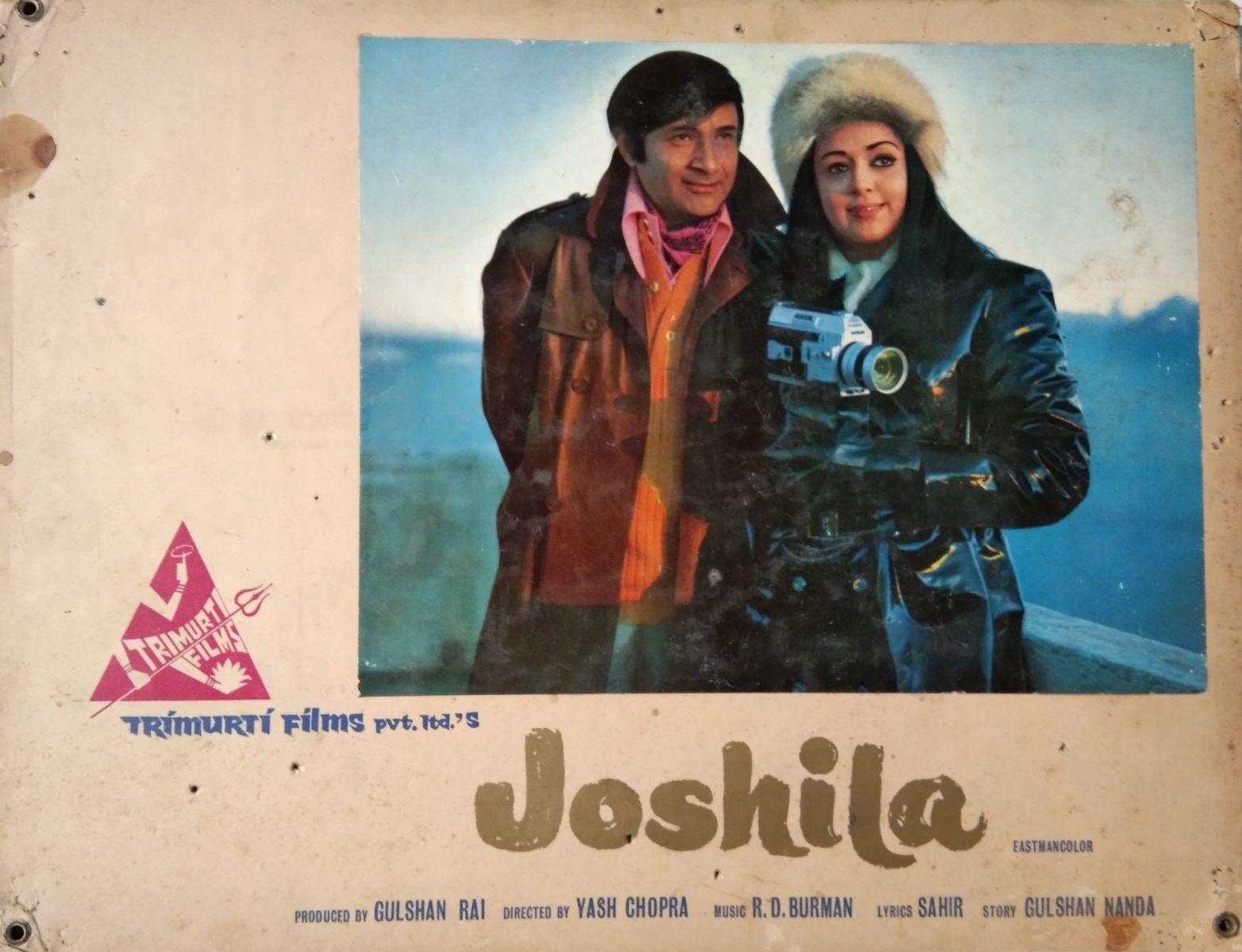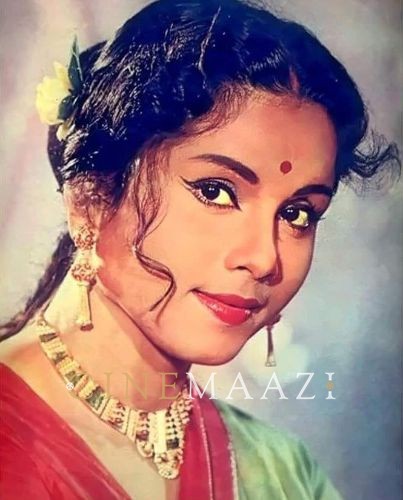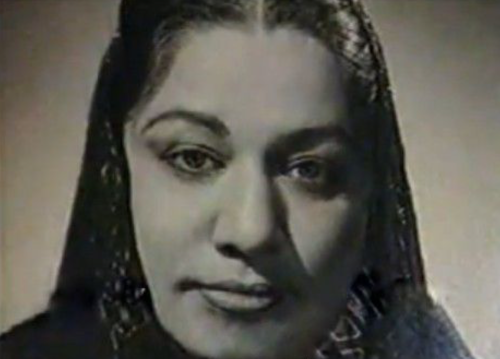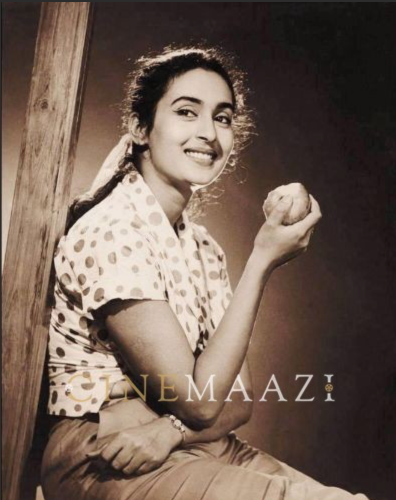The Other Sahir: Five Songs that are Relatively Unsung
In what is called the ‘golden era’ of Hindi film music, Sahir Ludhianvi strode like a colossus, bigger than most of his contemporaries, his songs often articulating a film’s theme. If his most celebrated work in the 1950s – Pyaasa, Phir Subah Hogi, Naya Daur – defined the zeitgeist of the era, its socialist undertones and the eventual disillusionment creeping in with the state of the nation, in the 1960s, he wrote some delectable love ditties and ghazals. Zindagi bhar nahin bhoolegi (Barsat Ki Raat), Chalo ek baar phir se (Gumrah) and Tum agar saath dene ka (Humraaz) remain unsurpassed in the annals of Hindi film lyrics when it comes to conveying love and longing.
He was also a master of the philosophical statement, be it Main zindagi ka saath (Hum Dono), Agey bhi jaane na tu (Waqt) or Sansar ki har shay ka (Dhund). Fewer still have evoked the wonder of nature as beautifully as Sahir: Thandi hawayen (Naujawan), Yeh raat yeh chandni phir kahan (Jaal) and Niley gagan ke taley (Hamraaz). As Javed Akhtar mentions in his conversation with Nasreen Munni Kabir, ‘Sahir never allows you to forget the surroundings, the backdrop … he constantly juxtaposes the beauty of nature with his love for a woman.’ That is why his songs transcended the limitation of a genre.
Having said that, there’s no doubt that the last ten years of Sahir had few songs that matched those of his heyday in terms of sheer poetry, barring Kabhi Kabhie. A Wikipedia listing of his best 30 songs has none, barring two from Kabhi Kabhie, after 1970. At the same time, it is his songs that stand out in films that had little scope for the aesthetic Sahir brought to his work.
Here then is a look at five lesser-talked-about gems that music aficionados seldom discuss vis-à-vis this legendary poet. Interestingly, all but one of these were composed by the king of music who ruled the 1970s and ’80s, R.D. Burman, and all but one were sung by the new voice of the era, Kishore Kumar. Not surprisingly, four of these songs had the Chopras (Yash and Ravi) helming the film – a throwback to a relationship that went back to the 1950s.
Kiska rasta dekhe, Joshila (1973)
The film was planned as a quickie to cash in on the stupendous success of Dev Anand’s Johny Mera Naam (1970). And it shows. Poor scripting is the least of the film’s flaws and the only thing one remembers about it today is Sahir’s ode to loss. He could well be lamenting his own state in a changing environment when he writes, Bhuli duniya kabhi ki tujhe bhi mujhe bhi, phir kyon aankh bhar aayi’

Mera tujhse hai pahle ka naata, Aa Galey Lag Ja (1973)
Before Manmohan Desai got well and truly infected with the lost-and-found virus, he made what is his most atypical film. He has been on record saying that this was his personal favourite of his own films. The film’s music too is most unlike any of Manmohan Desai’s more celebrated blockbusters, with a rare emphasis on melody and poetry. Nothing epitomizes this better that Sahir’s exposition of the eternal connection that lovers experience: Tu aur main kahin milay thay pehle, dekha tujhe to dil ne kaha.
Though credited to Sapan Chakravarti, the music of this film echoes R.D. Burman, which is not surprising given that the former was by now an integral member of Pancham’s team. In a year that had Sholay and Deewaar, Amitabh Bachchan had this much lower-key release whose theme is strongly reminiscent of the 1960 Raj Khosla film, Bombai Ka Babu. Again, while the film is almost forgotten, Sahir’s ode to life, sung to perfection by Kishore Kumar, has stood the test of time. No one exhorts you better to flow with the tide than Sahir: Behte chalein hum masti ke dhaaron mein, gunje yahi dhun sada dil ke taaron mein, ab ruke na kahi pyar ka kaarwan, neet nayi rut ke rang me dhalti rahe zindagi.
Maine tujhe manga, Deewaar (1975)
The film that defined the angry young man persona of Amitabh Bachchan, this is symbolic of the music scene of the era. A lyricist of the stature of Sahir had no songs shot on the film’s protagonist – unthinkable in the previous two decades when his songs defined the character of a film’s leading man and indeed its narrative. R.D. Burman had a falling out with Yash Chopra who, rightly in the interest of the narrative, got rid of a majority of the songs. Even the two that remain seem superfluous, though they have endured in memory. Of these, Maine tujhe manga again highlights Sahir’s intrinsic understanding of the duality of joy and sorrow: Chhanv ghani hi nahin, dhoop kadi bhi hoti hai raahon mein, gham ho ki khushiyan hon, sabhi ko humein lena hai bahon mein.
In a decade that Hollywood made the ‘disaster’ movie (The Towering Inferno, The Poseidon Adventure) the king of the box office, Ravi Chopra crafted what is probably India’s first experiment in the genre. Though the film failed to live up to its box office potential despite its high-octane cast and the thrills of a burning train speeding to disaster, Sahir’s qawwali stands testimony to the fleeting nature of life – a theme that he explored time and again.
Tags
About the Author
Shantanu Ray Chaudhuri is either an 'accidental' editor who strayed into publishing from a career in finance and accounts or an 'accidental' finance person who found his calling in publishing. He studied commerce and after about a decade in finance and accounts, he left it for good. He did a course in film, television and journalism from the Xavier's Institute of Mass Communication, Mumbai, after which he launched a film magazine of his own called Lights Camera Action. As executive editor at HarperCollins Publishers India, he helped launch what came to be regarded as the go-to cinema, music and culture list in Indian publishing. Books commissioned and edited by him have won the National Award for Best Book on Cinema and the MAMI (Mumbai Academy of Moving Images) Award for Best Writing on Cinema. He also commissioned and edited some of India's leading authors like Gulzar, Manu Joseph, Kiran Nagarkar, Arun Shourie and worked out co-pub arrangements with the Society for the Preservation of Satyajit Ray Archives, apart from publishing a number of first-time authors in cinema whose books went on to become best-sellers. In 2017, he was named Editor of the Year by the apex publishing body, Publishing Next. He has been a regular contributor to Anupama Chopra's online magazine Film Companion. He is also a published author, with two books to his credit: Whims – A Book of Poems (published by Writers Workshop) and Icons from Bollywood (published by Penguin Books).







.jpg)


